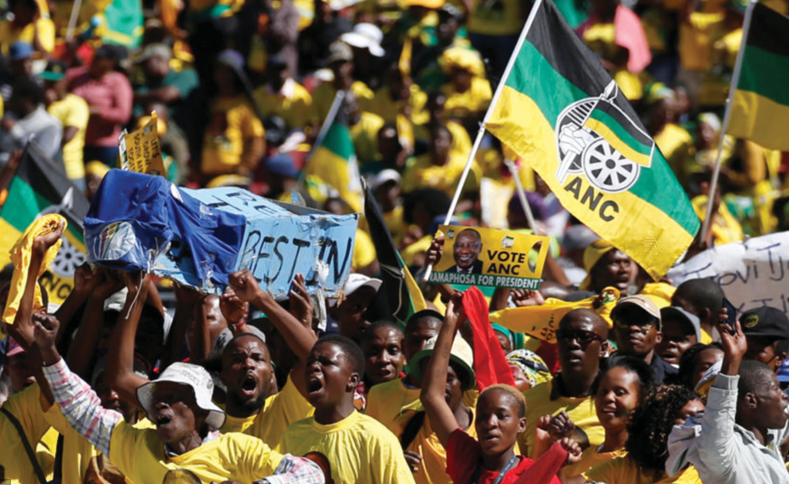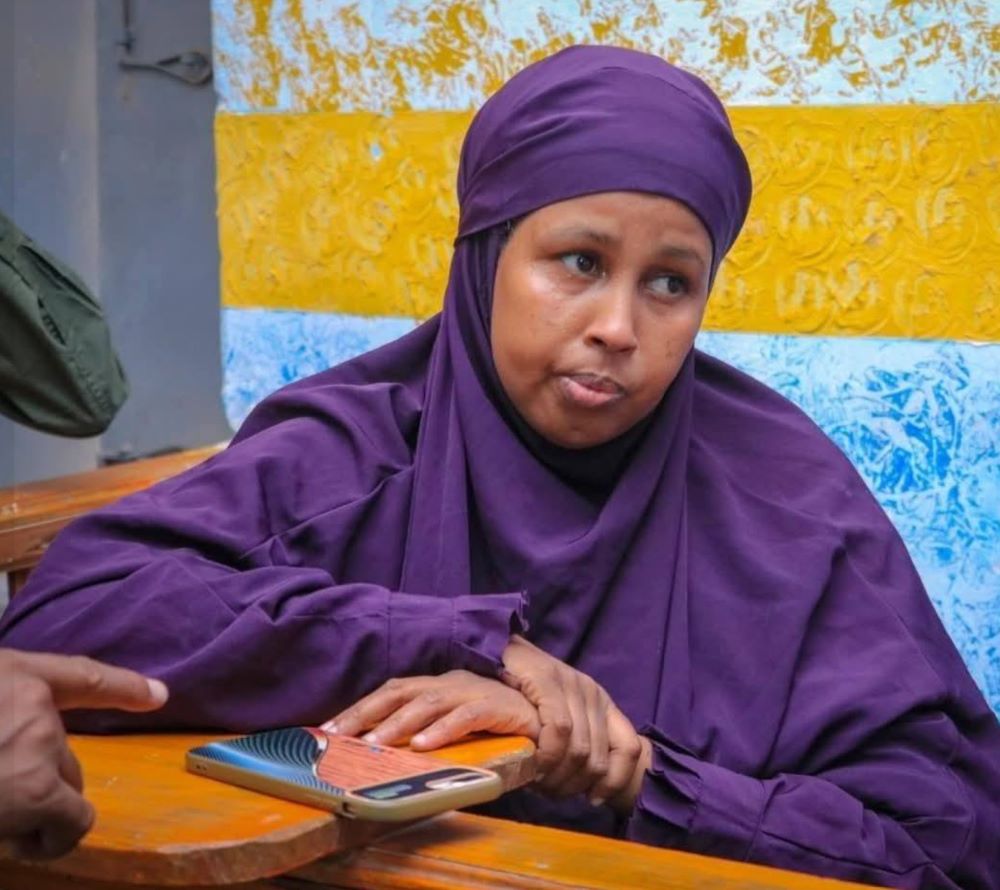News
ANC’s Iron Grip on South Africa Slips: A Political Earthquake Reshapes the Nation

In a nation grappling with one of the world’s highest unemployment rates, severe shortages of electricity and water, and rampant crime, South Africa’s governing par- ty, the African National Congress (ANC), has suffered a historic decline in voter support. Once a symbol of liberation and unity, the ANC now faces an uncertain future, having won significantly less than the nearly 58 percent of the vote it secured in the 2019 elections.
The decline of the ANC, Africa’s oldest liberation movement, marks a pivotal moment for one of the continent’s most stable nations and its largest economy. The party, which rose to international acclaim on the shoulders of Nelson Mandela, now has two weeks to form a government by partnering with rival parties that have previously denounced it as corrupt and vowed never to form an alliance with it. Maropene Ramokgopa, a top official in the ANC, expressed shock at the election results, signaling the party’s realization that they have missed something crucial. The loss has brought to light the internal and external challenges faced by the ANC, including ram- pant corruption and a deeply factionalized party structure.
President Cyril Ramaphosa, who leads the ANC, faces a grave threat to his ambition of serving a second term. Known for his negotiating skills that helped end apartheid, Ramaphosa must now unify his party and navigate a complex political landscape to form a coalition government. This task is further complicated by the internal divisions within the ANC and the external pressure from rival parties and the public.
Khulu Mbatha, an ANC veteran critical of the party’s handling of corruption, lamented the deterioration of conditions under Ramaphosa’s leadership. The ANC’s failure to address systemic corruption has been a significant factor in its decline, eroding public trust and support.
A major contributor to the ANC’s collapse is Jacob Zuma, Ramaphosa’s predecessor and archenemy. Zuma recently launched a new party, uMkhonto weSizwe (MK), which won nearly 15 percent of the vote, siphoning crucial support from the ANC. Despite the significant result for a new party, Zuma has discredited the election, claiming it was rigged and that his party actually won two-thirds of the vote.
Zuma’s actions foreshadow the political instability he could cause for the ANC. His refusal to accept the election results and threats to disrupt the certification process underscore the contentious political environment in South Africa. Without an absolute majority, the ANC can no longer unilaterally select the country’s president, who is elected by the 400-member National Assembly. With 52 parties in the national election, the ANC must now form alliances to secure a governing majority. This predicament upends South Africa’s political landscape and places the ANC at a critical juncture.
Potential coalition partners span the ideo- logical spectrum, posing significant challenges for the ANC. Aligning with certain parties could alienate parts of its base, complicating efforts to maintain a cohesive government. The ANC’s leaders must navigate these complex dynamics to form a stable coalition that can effectively govern.
Democratic Alliance (DA): The DA, which secured the second-largest share of the vote, is seen as a potential partner. However, the DA’s market-based economic policies and op- position to race-based affirmative action pose significant political risks for Ramaphosa. The DA’s stance on issues appealing to the right- wing white population further complicates the potential for a coalition.
Economic Freedom Fighters (EFF): Led by Julius Malema, the EFF presents another potential ally. The EFF’s platform of nationalizing mines and redistributing land to Black South Africans aligns with a segment of the ANC’s ideology but could deter international investors and big business. Malema’s conciliatory tone towards the ANC highlights a willingness to collaborate, but the ideological divide remains a hurdle.
The prospect of coalition governments raises concerns about political instability. Local coalition governments in South Africa have been marked by infighting and inefficiency, raising fears that a similar scenario could un- fold at the national level. This instability could distract from addressing the country’s pressing issues, such as unemployment, crime, and infrastructure deficiencies.
For many South Africans, the election rep- resents an opportunity for a significant reset akin to the transition to democracy in 1994. The slogan “2024 is our 1994” resonated with many voters, particularly the youth, signaling a desire for meaningful change and a break from the ANC’s past.
The ANC’s legacy as a liberation movement has lost its luster among younger South Africans who did not experience apartheid. Their disillusionment with the party’s failure to deliver tangible improvements in living conditions has driven the shift in electoral support.
The ANC’s decline could have broader implications for other former liberation movements in southern Africa, which have also seen declining electoral support. Analysts suggest that the outcome of South Africa’s election could foreshadow similar trends in neighboring countries, potentially reshaping the political landscape of the region.
Mavuso Msimang, a veteran ANC member, reflected on the party’s decline, attributing it to the failure to deliver basic services like electricity. The long lines at polling stations on Election Day signaled a shift in voter sentiment, as many South Africans expressed their dissatisfaction with the ANC’s governance.
South Africa stands at a crossroads, facing unprecedented political challenges and an uncertain future. The ANC’s historic decline in voter support underscores the urgent need for the party to address internal divisions, tackle corruption, and restore public trust. Forming a stable coalition government will be a crucial test for the ANC and its leadership, with significant implications for the country’s political stability and economic future.
As South Africans look to the future, the call for a reset offers a glimmer of hope for meaningful change and progress. The path forward will require strong leadership, unity, and a commitment to addressing the country’s most pressing issues, ensuring that the promise of liberation is fulfilled for all South Africans.
News
Puntland Executes Woman for Murder of 14-Year-Old Girl

Puntland Executes Woman for Murder of 14-Year-Old Girl
Authorities in Puntland, a semi-autonomous region of Somalia, have executed a woman convicted of murdering a 14-year-old girl, in a rare case in which the death penalty was carried out against a female offender.
The convict, Hodan Mohamud Diiriye, 34, was executed by firing squad on Tuesday in Galkayo, the capital of Mudug region, after a court found her guilty of beating a teenage girl to death.
The victim, identified as Saabirin Saylaan, had been working as a domestic helper in Diiriye’s household.
Her killing in November triggered widespread protests in Galkayo and renewed calls for stronger child protection measures in the region.
Officials said the execution was carried out under qisas, an Islamic legal principle that allows the family of a murder victim to demand capital punishment instead of accepting financial compensation.
Mudug State Governor, Faysal Sheikh Ali, confirmed that members of both the victim’s family and the convict’s family were present during the execution.
A regional decree mandates the enforcement of Islamic law in murder cases, according to Puntland authorities.
Officials also said the execution marked the first time in more than a decade that a woman had been put to death under a retaliatory sentence in Puntland.
The last known execution involving a woman occurred in 2013, when 13 members of the Islamist militant group, al-Shabab, including one woman, were executed for their role in the killing of a prominent Islamic cleric, authorities said.
Investigations revealed that Saabirin, who was orphaned at a very young age after losing both parents, had been living with Diiriye’s family for about two months before her death.
Police said the teenager had suffered repeated physical abuse during that period.
Digital evidence recovered during the investigation reportedly showed a pattern of sustained violence, some of which circulated publicly ahead of the trial.
A post-mortem examination found that the victim sustained multiple injuries consistent with prolonged abuse, authorities said.
As details of the case emerged, public outrage intensified, with hundreds of women and youths staging protests across Galkayo, demanding justice for the victim and accountability for those involved.
Community leaders, activists and civil society groups have since renewed calls for stronger legal protections for children and domestic workers, who they say remain particularly vulnerable to abuse in Somalia.
The case has drawn national attention to the often-hidden problem of child abuse, especially within domestic and extended family settings, where such cases frequently go unreported.
News
Muammar Gaddafi’s Son, Saif al-Islam, Reportedly Shot Dead in Libya

Muammar Gaddafi’s Son, Saif al-Islam, Reportedly Shot Dead in Libya
Saif al-Islam Gaddafi, son of Libya’s former leader, Col. Muammar Gaddafi, has reportedly been shot dead in circumstances that remain unclear, Libyan media sources said on Tuesday.
The death of the 53-year-old politician was confirmed by the head of his political team, according to the Libyan News Agency.
However, conflicting accounts have emerged over the circumstances surrounding his death.
His lawyer told the AFP news agency that Saif al-Islam was assassinated at his residence in the city of Zintan by a “four-man commando” unit.
The lawyer did not disclose who may have been responsible for the killing.
In a separate version of events, Saif al-Islam’s sister told Libyan television that he died near Libya’s border with Algeria.
Saif al-Islam Gaddafi was long regarded as the most powerful and feared figure in Libya after his father, who ruled the country from 1969 until he was ousted and killed during a popular uprising in 2011.
Born in 1972, Saif al-Islam played a prominent role in Libya’s rapprochement with Western nations from around 2000 until the collapse of the Gaddafi regime.
Despite holding no official government position, he wielded significant influence and led high-level negotiations on behalf of his father.
These efforts included talks that culminated in Libya abandoning its nuclear weapons programme, a move that led to the lifting of international sanctions and restored diplomatic ties with Western countries.
At the time, Saif al-Islam was widely portrayed as a reformist figure and the acceptable face of a changing Libya.
Following the fall of his father’s government, Saif al-Islam was accused of playing a key role in the violent repression of anti-government protests in 2011.
He was subsequently captured and detained by a militia in Zintan, where he spent nearly six years in custody.
The International Criminal Court sought his extradition to face charges of crimes against humanity related to the suppression of the uprising.
In 2015, a court in Tripoli sentenced him to death in absentia for his alleged role in the crackdown, although the ruling was rejected in eastern Libya.
He was released in 2017 by a militia in Tobruk under an amnesty law enacted by authorities in the east of the country.
Since the overthrow of Muammar Gaddafi, Libya has remained deeply divided, with rival governments and numerous armed groups controlling different parts of the country.
Although Saif al-Islam had repeatedly denied any ambition to succeed his father, insisting that power was “not a farm to inherit,” he re-emerged on the political scene in 2021 when he announced his intention to contest the presidency.
That election was later postponed indefinitely, prolonging Libya’s political uncertainty.
As of Tuesday, Libyan authorities had yet to issue an official statement clarifying the circumstances surrounding his reported death.
News
DA Leader Steenhuisen to Step Down, Raising Fresh Uncertainty Over S’africa Coalition

DA Leader Steenhuisen to Step Down, Raising Fresh Uncertainty Over S’africa Coalition
Leader of South Africa’s Democratic Alliance (DA), John Steenhuisen, has announced that he will not seek re-election when the party holds its leadership contest in April, a decision that could unsettle the country’s fragile coalition government.
The DA, South Africa’s second-largest political party, entered into an unprecedented coalition with its long-time rival, the African National Congress (ANC), in 2024 after the ruling party lost its parliamentary majority for the first time since 1994.
Steenhuisen, who assumed leadership of the pro-business DA in 2019, currently serves as Minister of Agriculture in President Cyril Ramaphosa’s coalition government.
The 49-year-old politician had been widely expected to contest the leadership position again, but reports suggest he was compelled to abandon his bid amid a series of internal controversies within the party.
Confirming his decision at a press conference, Steenhuisen said he would devote his full attention to his ministerial responsibilities for the remainder of the administration’s tenure.
“For the rest of this term of office, I will focus all of my time and energy as Minister of Agriculture on defeating the most devastating foot and mouth disease outbreak our country has ever seen,” he said.
His decision has raised concerns about the future direction of the DA and the potential implications for the stability of the ANC-DA coalition, which has faced criticism and resistance from factions within both parties.
The DA has yet to announce a successor or provide further details on the leadership transition process.
-

 Analysis1 week ago
Analysis1 week agoThe Agony of a Columnist, by Alabidun Shuaib AbdulRahman
-

 Analysis6 days ago
Analysis6 days agoNow That Nigeria Has a U.S. Ambassador-Designate, by Boniface Ihiasota
-

 Milestone6 hours ago
Milestone6 hours agoChief Chukwuma Johnbosco and the Making of a Purpose-Driven Leader
-

 Diplomacy6 days ago
Diplomacy6 days agoCARICOM Raises Alarm Over Political Crisis in Haiti
-

 News1 week ago
News1 week agoMacron invites Chad’s Déby to Paris amid push to reset ties
-

 News1 week ago
News1 week agoTinubu Unhurt After Brief Stumble at Turkey Reception










